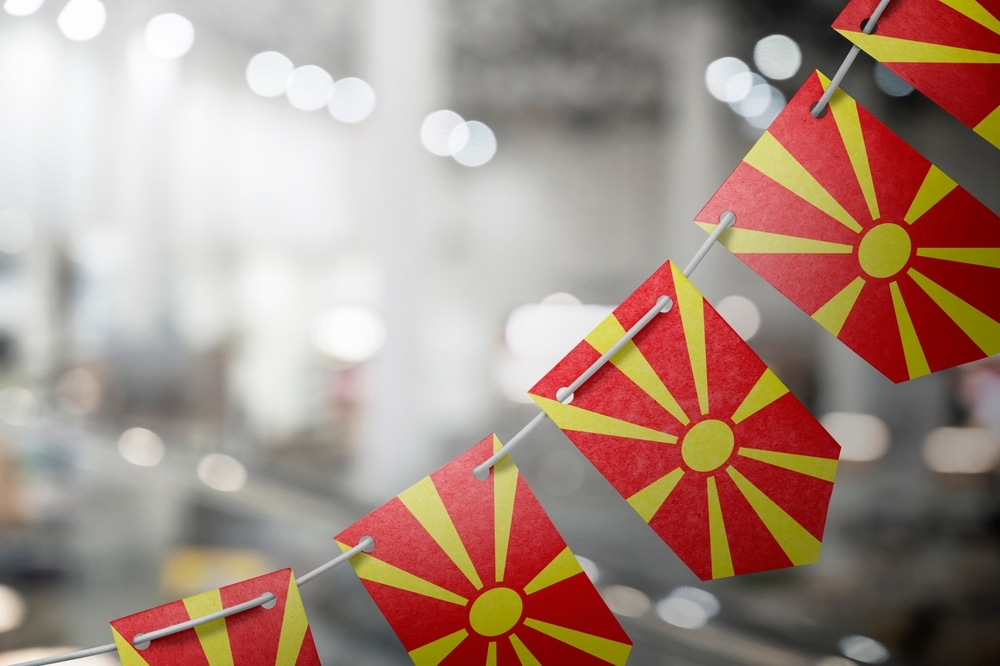North Macedonia, municipalities go to the polls
Citizens of North Macedonia are called to renew municipal councils and elect new mayors: this election is marked by the high number of candidates and controversy over the integrity of the electoral lists

shutterstock_2245554465
© BUTENKOV ALEKSEI/Shutterstock
On October 19, citizens of North Macedonia are electing 80 mayors and local municipal councils. These are the eighth elections since the country’s independence (local elections are held every four years in the second half of October).
A victory in the first round requires a turnout of at least one-third of the registered voters and over 50% of the votes. Otherwise, a second round for mayors is expected two weeks later, on November 2.
The election of council members concludes in the first round, and their distribution is calculated according to the D’Hondt formula (the total number of votes received by each party list individually is divided by 1, then by 2, by 3, by 4, and so on up to the final number of candidates to be elected in a specific electoral unit).
From 1965 to 1996, Macedonia had 32 municipalities, several of which formed the city of Skopje as a separate administrative unit. In 1996, a new law on territorial division was adopted, forming as many as 123 municipalities. In 2004, a new law on the territorial division of Macedonia with the current 80 municipalities was adopted.
These elections see a large number of candidates – 309, including only 32 women, for 80 mayor seats; 10,490 for 576 council members. In 2021, there were only two female mayors – Žaklina Jovanovska in Staro Nagoričane and Danela Arsovska for the City of Skopje.
The latter is not participating in the elections. In 2021, she was supported as an independent candidate by the then-ruling party VMRO DPMNE, but a conflict emerged during her term.
She began dismissing city officials from the ranks of VMRO-DPMNE, accusing them of being guided by party interests, while VMRO-DPMNE accused Arsovska of holding the city hostage to her incompetence and political spite.
A “political war” was waged in the Council of the City of Skopje where VMRO DPMNE had a majority, leading to disagreements between them and the mayor Arsovska. Due to the political conflicts and mutual accusations, a large number of problems appeared in the city, such as uncollected garbage from containers and unpaid wages to bus drivers who then went on strike.
Skopje is divided into 10 municipalities, mostly led by VMRO DPMNE, so the political clashes left some work unfinished. VMRO DPMNE has now nominated the current mayor of the Skopje municipality of Kisela Voda, Orce Gjorgjievski. The capital hosts the most interesting political battle, with 18 candidates for mayor and 20 lists for the City Council.
During the campaign, the two largest parties clashed over the EU integration process. The opposition leader, Venko Filipche of SDSM, spoke about his “Resolution with Red Lines” proposal and expects all parties to support it to solve the deadlock with EU integration.
Hristijan Mickoski, Prime Minister and leader of the ruling party VMRO DPMNE, announced his own Resolution that he will propose after the elections. In order to continue negotiations with the EU, North Macedonia needs to implement constitutional amendments and recognise that there is a Bulgarian minority in the country.
Filipche’s idea is for the state to fulfill the obligations of the negotiating framework and adopt the constitutional amendments in February 2026, but as a final hurdle. According to Mickoski, the idea for a joint declaration with “red lines” is just a new “game” by the opposition. “They (SDSM) had such a declaration in the Parliament, not to accept ultimatums from Sofia, and yet they accepted everything,” said Mickoski.
Old challenges are also part of these elections. This year, the voter list features again polling stations where there are more registered voters than residents. For example, Debar, according to the last census, has 15,412 residents, but there are 19,763 eligible voters on the voter list, or 4,351 people more. In Centar Župa, there are twice as many voters – 7,551 – as there are residents – 3,720.
“The situation is a result of a problem with the last census of resident and non-resident population,” is the explanation from the State Election Commission.
Unlike Debar, where the required turnout was secured until now, in Centar Župa, it was not reached in the October 2021 elections. By a Government decision, the mayor was appointed ad interim until the extraordinary elections were held, in which he secured the second mandate.
A similar picture involves the entire country. The total number of registered voters is 1,832,415, while according to the 2021 census, the total population is 2,097,319 people, and the total resident population is 1,836,713 people. The diaspora does not vote for local elections, but individuals who are temporarily working or living abroad can travel home and vote.
A gun incident in the city of Kumanovo was initially linked to the local elections. On October 7, in Kumanovo, shots were fired at a car driven by 43-year-old Zekirija Shaini, from the village of Slupčane, the leader of the DUI coalition’s councilor list in the Municipality of Lipkovo.
He suffered only minor injuries and was released from hospital after one day of treatment. The Public Prosecutor’s Office said that initial indications do not point to political motives behind the gun incident, since his wife was among 6 people arrested for a murder attempt.The shooter is a 36 years old man from Gostivar, now wanted by the police.
Tag:








